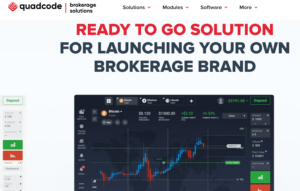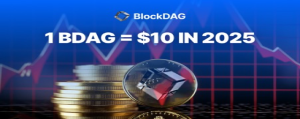Regulators turn attention to major FX clearing houses including LCH.Clearnet and CME
The regulators are looking at how to bear down on the FX clearing houses, notably in the US and UK. We look at what this means and who will be under the microscope

It has been commonplace over recent years for financial markets regulatory authorities to put their spotlight on specific areas of the non-bank electronic trading industry.
Notably, many regulators in regions with significant standing as global financial centers have been continually chipping away at the CFD market, and have made substantial rulings with regard to best execution, trade reporting and infrastructure with regard to OTC products.
Now, the FX clearing houses are under the microscope, as the Financial Stability Board (FSB), which coordinates rules for the G20 group of wealthy nations, said it would “consider during the course of 2021” whether clearing houses should have “pre-funded resources” as buffers.
Clearing houses oversee the settlement of financial transactions and are vital to ensuring the correct payments reach the right parties, even if a counterparty goes bust.
Since the financial crisis, regulators have encouraged firms to use clearing houses to safeguard deals. They include London’s LCH and CME’s Clearing.
The FSB said today that the coronavirus crisis had “demonstrated the benefits that central clearing brings for global financial stability”. However, it said that the increased importance of clearing houses increased the need for regulation.
To this end, the international organisation laid out new rules to help national regulators assess the adequacy of the resources currently in place for clearing house resolutions.
For example, although clearing houses are already required to have sizeable default funds, the new rules set out how they should be replenished after covering losses, however, the FSB’s report did not address calls by banks and investors that the houses take on more of the burden themselves.
These rules would likely be most important to entities in London and Chicago, LCH.Clearnet and CME being the world’s largest FX settlement houses.
What about Europe, however?
Indeed, European clearing is nowhere near as critical as British and American clearing as the British and American markets are far more important, holding London, New York and Chicago as the world’s financial markets epicenters, however if the FSB is looking solely at the large financial centers, they are missing an important factor, if they want to get pious about regulation of clearing.
Back in 2017, Eurex Clearing said its 10 most active participants will be eligible for a “significant share” of the returns from its multi-currency interest rate swap offering, as well as being offered seats on its board.
Deutsche Boerse had boldly claimed that Bank of America Merrill Lynch, Citigroup, Commerzbank, Deutsche Bank, JP Morgan and Morgan Stanley had all signed up to the program, adding to the existing 200 clients which Deutsche Boerse claims Eurex currently has on board.
Indeed, these are major Tier 1 FX dealing banks, and yes they may well have signed up to the program, but that absolutely does not indicate a priority to clear all their trades in Germany.
No Tier 1 bank would even consider doing that, and LCH Clearnet’s firm, London-based OTC FX clearing customer base will remain absolutely undiminished.
“This market-led initiative will benefit clients and the broader market place through greater choice and competition, improved price transparency as well as reduced concentration risk,” said Eric Mueller, Eurex’s chief executive.
Competition is not fostered by offering conflicting ownership stakes in clearing houses which are located far from the mainstay of interbank dealing and have no place in this industry’s global topography or infrastructural considerations.
The MiFID II rulings, which were about to be implemented at the time of these talks between Deutsche Boerse and LSE, set forth by pan-European regulatory authority ESMA require all venues, Deutsche Boerse being one of them, to report their trades as Regulated Marketplaces (RM), and will ensure that favorable advantages such as the sharing of the revenues of a trading venue with its participants, or offering shares in an RM to its customers are not permitted, as it creates the possibility of not providing the same terms to each participant, thus is not able to operate as an impartial centralized marketplace or counterparty.
That aside, Eurex already handles the vast majority of continental European trade clearing, yet is absolutely insignificant when compared to LCH.Clearnet’s clearing volumes in London.
Deutsche Boerse was well aware of this, so realizes that the string it has in its bow is an ability to lobby the European Cental Bank to ensure Euro clearing can be moved to Germany, this ideology being partly down to an escalating war between London and the European Union over euro clearing, with the City of London currently handling over 90% of Euro clearing.
Looking at the history of the failed merger between London Stock Exchange and Deutsche Boerse, it was clear that clearing dominance was part of Frankfurt’s agenda.
FinanceFeeds had been privy to information during the course of the proposals to merge the two venues that as a result of research by the European Commission, a merger would create the world’s largest margin pool with a value of 150 billion euros, therefore could impede competition for smaller trading venues that rely on LCH.Clearnet as well as other firms that offer similar collateral settlement services.
On that basis, London Stock Exchange’s response was to make a quick attempt to sell LCH SA in order to address proactively any anti-trust concerns. LCH Group which holds the European subsidiary LCH SA is 57% owned by the London Stock Exchange, with the remainder being owned by other users of the service.
It is ironic that the concerns over the ill-fated LSE and Deutsche Boerse merger, which FinanceFeeds stated from the very beginning would never proceed, demonstrated by Lord Myners and other senior London officials with lifelong careers in the exchange traded derivatives sector in the largest financial center in the world were ignored by Germany, and that it has taken a report by the anti-business and staunch socialist European Commission whose interests are anti-British to stifle a potentially harmful merger which would have placed the control one of London’s fine institutions in Frankfurt, which is absolutely nowhere on the world’s financial markets and electronic trading stage.
The desperation that had now come about by the end of last year had been sensed by Euronext, which was one of the key suitors for the purchase of LCH SA, for which London Stock Exchange wanted £430 million, and has to sell it in order to put paid to the investigation into any potential anti-competitive nature of the proposed deal, and quite frankly to just get on with it.
In late October last year, JPMorgan Cazenove was enlisted to oversee the sale of LCH SA, and all looked set to head to market and find a suitable acquirer, with Euronext being in the lead because it contributes around half of the revenue of LCH SA in clearing business from France, Holland, Portugal and Belgium.
Euronext appeared at the time to realize its position of strength in that it is strategically and operationally the most suitable acquiring party, and the shortlist of alternatives that would buy LCH SA is dwindling, however, Euronext made it clear that it would not pay one penny for LCH SA. FinanceFeeds held the opinion at the time that this in itself represented a potential cartel in that clearing across all electronic trading via these two entities will become intertwined.
Therefore, even if that deal had gone ahead and was not a cash transaction, it would not matter if LCH SA was given to Euronext for free, as it would remove the one obstacle that is in the way of London Stock Exchange and Deutsche Boerse creating a massive margin pool whilst their perceived moves toward lobbying the FCA to restrict the core business activities of OTC participants makes for an effortless sweep in which the entire business can be moved to their books.
Deutsche Boerse has had OTC FX in its sights for some time, one example being the acquisition by Deutsche Boerse in July 2015 of FX trading platform 360T for $796 million.
Further examples of this have been demonstrated, some dating back several years. Back in 2011, Deutsche Boerse took a minority stake in British FX technology solutions provider Digital Vega which was a technology vendor to buyside and sellside firms in the OTC derivatives sector.
At that time, the idea was to increase Deutsche Boerse’s positioning in the provision of pre-trade price transparency in the derivatives area for institutional investors and taking an initial footprint in the FX derivatives space. An investment agreement was signed in February this year, whereby Deutsche Börse would pay a US dollar amount in the single digit million range.
Perhaps the European entities were also looking to shift this regulatory burden onto LCH.Clearnet. Who knows.
Under the new proposals by the FSB, key entities may worry that they could be on the hook for too much of the burden if clearing houses fail. Big names such as Blackrock and Citigroup have said the clearing houses should pay more into default funds.
The FSB today said it would look into this issue further next year. It said it will develop policy “on the use, composition and amount of financial resources in recovery and resolution, and this would include assessing whether any new types of pre-funded resources would be necessary to enhance CCP resolvability.”










